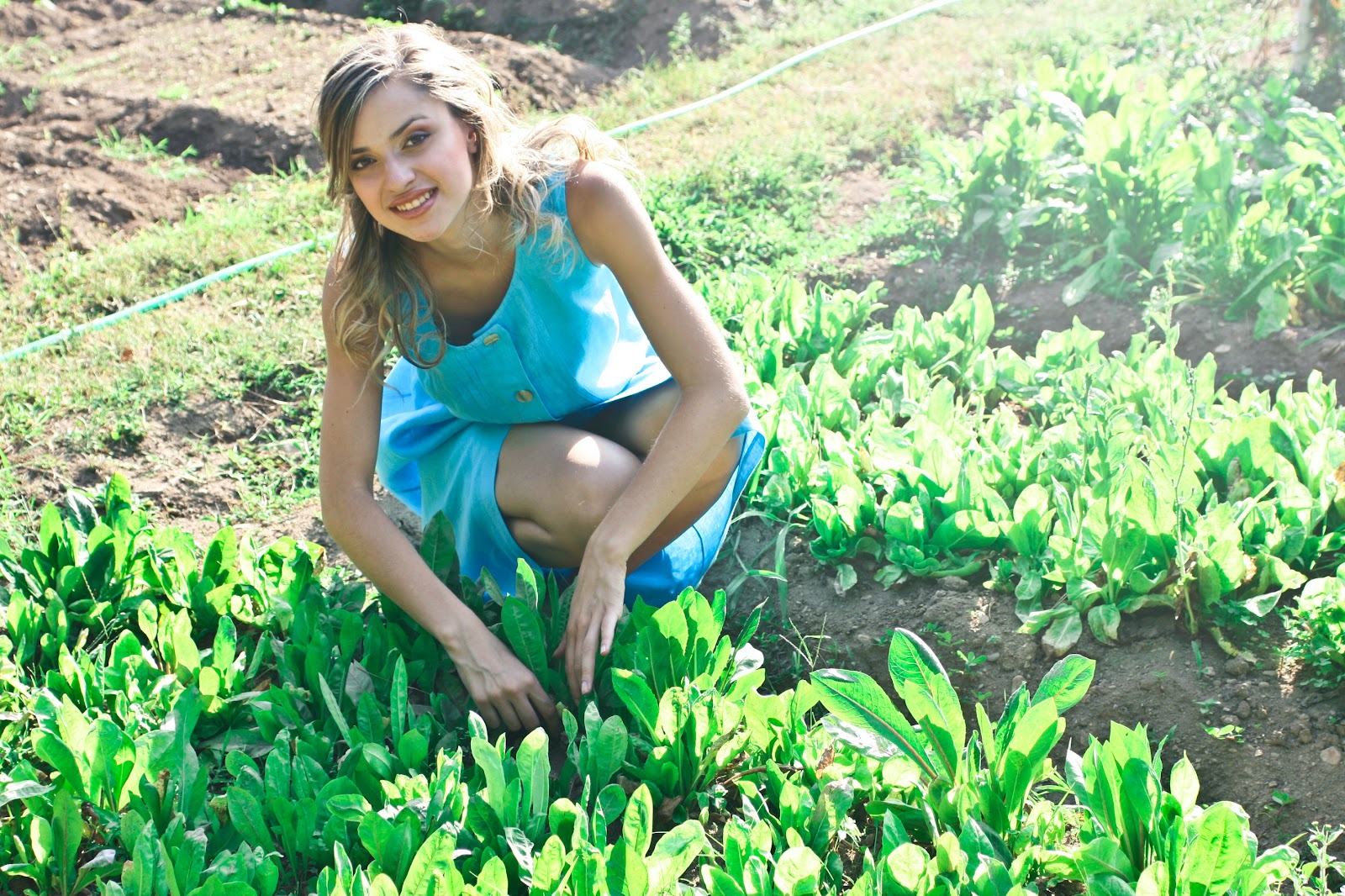What is Agriculture ? and the Importance of
Agriculture.
What exactly is agriculture? The word itself conjures up images of wheat fields,corn, and plows and combines, but the world of agriculture covers much morethan that.In this article, we'll break down what agriculture means and why it's important to havefarmers on your side—or at least know about them and how they operate.What is Agriculture ?
Agriculture,also known as farming or horticulture, refers to cultivating plants for food,livestock, and other products used to sustain human life.It includes arable farming or agronomy, plant cultivation, and horticulture. In generalterms, both terms farming and agriculture are used interchangeably concerningplants.For example, someone who works in botany is a farmer; someone who works inagriculture is an agriculturist.
Despite being associated with plants—namely trees--agriculture also involves fishfarming (aquaculture), animal husbandry, ranching, and forestry management.
Importance of Agriculture
#1 -Agriculture raises life expectancyIn countries like India, people living in rural areas live longer than thoseliving in urban ones. Why? Rural people tend to follow traditional methods ofagriculture which are better adapted to local environments than importedforeign crops.Traditional farming methods have strong social and cultural roots that promote variousforms of lifestyle modification such as healthy diet choices, physicalactivity, stress management, etc.On average, people in rural areas spend about two hours on their daily chores (usually lessfor women).Compare that with eight hours+ spent by urban folk on errands a day and you'llunderstand why folks from villages stay healthier for longer.Regular physical activity can reduce one's risk factors (obesity) while plant-baseddiets can help lower risks related to obesity and heart disease.
#2 -Improves healthA healthy body promotes a healthier mind. Regular physical activity can prevent certaindiseases, reduce blood pressure, lower blood cholesterol levels, strengthenbones and muscles, and prevent injury.With regular exercise (such as 30 minutes a day) even those with chronic conditions canenjoy an improved quality of life.Exercise also helps to control weight (can help you shed unwanted pounds or maintain a
healthy weight
#3 -Provides food security
As much as we need food, the food needs us. It depends on humans to grow, harvest,prepare and distribute it in a way that satisfies societies' needs.The food industry employs one in every eight workers in America—about 16 percent of alljobs. Take out everyone who works directly with food (and there are many),including farmers, grocers, restaurant staff, and fast-food workers.That’s more than 12 million Americans providing something we all need: calories to survive.
#4 -Makes us more efficient
Agriculture is one of humankind’s greatest innovations. It enables us to produce more foodthan if we hunted animals or gathered plants by hand.Farming has allowed us to settle down in one place, instead of constantly moving around,looking for fresh hunting grounds or sources of vegetation.It also allows people who are limited in strength or mobility to stay alive andhealthy. People who lack hearing, vision, strength, or other physicalattributes rely on agriculture-related jobs like farming because it gives thema source of income, they would otherwise not have access to.We can also thank agriculture for allowing our population to grow into what it istoday—more than 7 billion strong!
#5 -Keeps us in touch with nature
It's no secret that a lot of people who live in urban areas live with a little bit lesscontact with nature than their country cousins.It seems like nowadays, many children are exposed to nature for only brief periods,in-school classes or on vacation.But being surrounded by natural things does a lot for our mental health. Being close togreen plants can help us relax; we've discovered some strong evidence thatgoing outside (even without seeing any actual plants) can make us happier.Can help mitigate climate change: No matter what you think aboutclimate change, there's no denying that it's happening.That said,not all scientists agree on exactly how much humans have todo with it - but most agree that reducing pollution is important anyway.
#6 -Raises the quality of life
On a global scale, agriculture is responsible for more than one-third of
mankind’s food.Without farming, life as we know it would be impossible.
If there were no farmers, people would be forced to hunt, fish, and gather theirfood—and let's face it:Our modern comforts depend on a steady supply of nutrition. Withoutagriculture, we’d all have to go back to picking berries in our spare time justto get by.Ironically enough, if people stopped doing agriculture altogether, humankind
wouldn’t survive very long at all.
If we didn't do agriculture humans wouldn't survive because there are
many things that animals can do in nature but a human cannot
do like making clothing from fur or using bird feathers for
decoration.
#7 -Makes the planet greener
Approximately 70% of our air, water, mineral, and energy resources areaffected by agriculture.The green revolution has developed improved cultivation methodsthat have greatly reduced soil erosion as well as dramatically decreasedinorganic fertilizer pollution.Moreover,through increased food production for an ever-increasing population
worldwide,agriculture has added to biodiversity by bringing marginal land into 4
crop production.
If you look out at a field of corn or soybeans there may be little living things other
than those crops or insects farming them; however, take notice of what
those plants touch- grasses outside that field or trees just over some hill.
All these creatures owe their life to farming practices; they live in areas they wouldn’totherwise be able to inhabit because farmers have made it safe for them.#8 - We have access to it all year long.
The vastmajority of food produced in North America (and around 60% worldwide)
comes from agriculture.
That includes your fruits, vegetables, grains, dairy products, meats—even yourcoffee and chocolate. When you add it all up, we’re talking about a little over$1 trillion worth of food per year.That’s not chump change! And with agriculture being such a crucial industry toour economyand health as well as an incredibly intricate science itself, it's timeto stop taking it for granted.Instead, let's sit back for a moment and appreciate everything that goesinto producingour daily meals... as well as what might be missing if thatsystem wasn't there at all.
#9 -Brings out our creativity
From science to art, creative people are pushing boundaries in all fields. Theirinventiveness has been pivotal in shaping society’s technological advances andits cultural values.And now more than ever, a scientific mindset—and a bit of creativity—
is crucial for staying competitive in business.
Startups that have at least one creative founder are 37% more likely to succeed
than those founded by not-so-creative types.
Think your skills aren't suited for commercial success? There is no reason whythey can'tbe:Whether you're painting, writing songs, or building apps, harnessing yourtalent into something marketable will serve you well as an entrepreneur—andboost your chances of success.
#10 – It feeds people, animals, & plants
Of course,food isn't only for feeding humans. It also feeds livestock such as pigs,chickens, cows, goats, sheep, and fish—not to mention all plants.This is a big part of agriculture's $5 trillion contributions to global GDP in 2012.And that doesn't even count all of agriculture's non-consumptive uses.For example, most people aren't aware that almost half of the agricultural outputgoes toward making products like rubber tires, clothes, paint, and more—withoutbeing eaten by people or animals.As important as agriculture's consumptive uses are though, it still accounts foronly ~20% of human water consumption globally on average.











Comments
Post a Comment
IF YOU HAVE ANY DOUBTS PLEASE LET ME KNOW